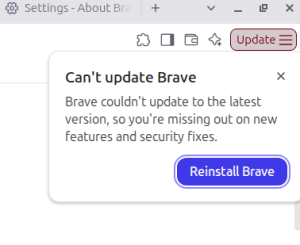Blocklancer Could Be A Killer App For Freelancers
The cryptocurrency world possesses a lot of potential for the freelancing and microtasking world, but hasn’t yet found its “killer app” for the freelance market. On the one hand, sites like Coinality and XBTFreelancer do exist and it’s considered normal for freelancers and clients to meet on Bitcointalk’s Services subforum. On the other, the problem with meeting clients on a forum is that both parties have to trust one another to keep up their end of the bargain and Fiverr dropped the ability to pay in Bitcoin, citing “lack of interest”.
So room still exists for a “killer app” that could dominate the cryptocurrency freelancing market if handled correctly. Blocklancer could be that killer app and is incidentally set to open its ICO over the winter of 2017/18.
Censorship-Proof and Trustless
As previously mentioned, freelancers are not necessarily certain who they can trust when searching for clients. A client might disappear with their work or find some excuse not to pay them. Blockchain smart contracts solve that problem by making certain that work is not shared in a usable form until the client pays up. This might not always ensure that the client won’t refuse to pay, but will at least make sure that the client gets to watch the work self-destruct if the terms of the contract are not met.
Blocklancer is also censorship-proof, which should be attractive to clients that might hesitate to post a job on a site like Upwork because it might offend somebody who is excessively quick to hit the “Report” button.
Users can’t be censored purely because somebody takes a dislike to them, either. If a client posts a job that requires an article on how Antifa is actually the bad guy in the violent protests at Charlottesville, Virginia, for instance, I might not bid on that job, but I also can’t have you banned over a politically incorrect post. And neither can clients seek to have me banned purely because I wrote something that they disagree with.
No More Fake Reviews Or Uncaring Centralized Authorities
Freelancers depend on a good reputation to earn a living long term. For this reason, new freelancers are often stuck earning less money for the first six months to a year while they build their reputations if they can find jobs at all. That’s why quitting your day job at first is not recommended. Freelancers also hate the dreaded, undeserved bad review from a client who has taken an unreasonable dislike to them even though they got the job done. Blocklancer solves this problem with the obvious fact that smart contracts are set up so that freelancers won’t get paid if they don’t do the work and clients won’t get the work in a usable form if they don’t pay up. It also prevents clients from leaving fake reviews simply be leaving notations of the percentage of jobs that are successfully completed and paid for.
One of the biggest problems with the centralized dispute resolution offered by Upwork and Freelancer is that these sites care less about settling disputes between clients and freelancers fairly than they do about protecting themselves against lawsuits. Most freelancers who have been around the block a few times will have had at least one ruling made against them even though they can prove that they did the work. Blocklancer aims to solve this problem with the Token Holder Tribunal. Token holders are basically Blocklancer’s stakeholders who care about not losing users due to unfair dispute resolution proceedings.
The fees are also attractively low at only 3% per job, as compared to the 20% that sites like Fiverr charge. This low percentage will have the added benefit of enabling freelancers to keep more of their earnings and enabling clients to find more cost-effective freelancers who don’t have to “pad” their bids to account for the high fees.
The fees are distributed among the token holders. You could still snag some tokens with the ticker symbol LNC by completing easy bounties or by buying some when the ICO opens. (Slight disclaimer: I earned a few tokens through bounties.)
Could Blocklancer Become The Freelancing Killer App, Though?
If Blocklancer can stick to its planned roadmap and develops a good marketing strategy beyond offering bounties for social media sharing, then it could stand a chance of competing on an equal footing with established services like Fiverr and Upwork. The thing Fiverr got wrong was assuming that there wouldn’t be a market for Bitcoin and Blockchain smart contracts among freelancers simply because its attempt to integrate Bitcoin failed. Fiverr never gave its freelancers the option to be paid in Bitcoin in any case.
One thing that gives Blocklancer an edge is lack of reliance on third-party payment processors like Paypal, which would have crippled Blocklancer’s ability to develop a truly decentralized and censor-resistant platform. Even Bitwage and Coinbase could be chancy: What if a potential user does not have a photo ID card that he or she could use to confirm individual identity?
I did needle Blocklancer about the photo ID thing on Bitcointalk. The team just says that, naturally, they would have to follow local regulations. Anybody know a good VPN?
By refusing to depend on third party processors (not even Coinbase!), Blocklancer could get into killer app territory just by reaching the markets that Paypal and mainstream financial institutions won’t touch. Projects like Blocklancer could put regions with unstable economies and unbanked populations on an equal footing with the rest of the world so that people who are willing to do so can lift themselves out of poverty and earn cryptocurrencies that may be a tad volatile, but are certainly more stable than some fiat currencies. (Yeah, I’m looking at you, Venezuela.)
So it’s fair to say that Blocklancer could do the one thing that I thought was super obvious ever since I recognized Bitcoin’s potential to reach markets that get ignored by mainstream institutions. It might even disrupt more popular freelancing platforms like Fiverr once freelancers start recognizing the strengths of “smart” contracts and decentralized platforms that are designed to protect their rights. Killer app? Sure, if Blocklancer follows its roadmap and can get its name out to its most obvious target markets. (Yes, I said “if”, and you have been watching too many Disney movies, am I right?) So, as a freelancer, it’s fair to say that this is something I like the looks of. So snap up some LNC by buying some with Ethereum or sharing a Tweet or two, and you can get all the benefits of being an early adopter of a nice-looking new freelancing platform.








